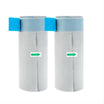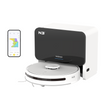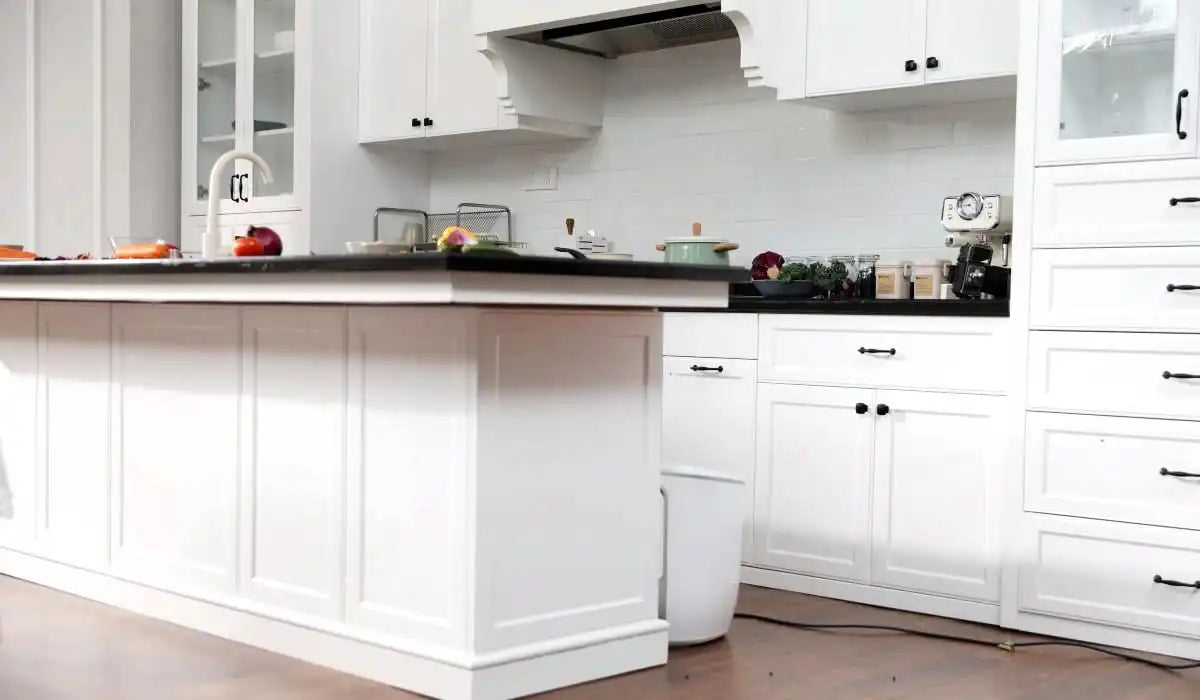
Kitchen pests and unpleasant odors are common problems that can significantly impact the cleanliness and comfort of your home. These issues not only create an unsanitary environment but can also attract more pests, leading to a cycle that's hard to break. Fortunately, there are effective strategies to tackle both pests and odors, ensuring that your kitchen remains a fresh and welcoming space. This blog will cover best practices for keeping pests out of your kitchen, tips to prevent and eliminate odors, and the essential role a kitchen composter plays in maintaining a clean kitchen environment.
Best Practices for Keeping Pests Out of Your Kitchen
Keeping your kitchen pest-free begins with good habits and proactive measures. Here are some essential strategies:
- Proper Food Storage and Regular Cleaning
- Store food in airtight containers to prevent pests from accessing it. This is especially important for grains, cereals, and pet food.
- Clean your kitchen regularly, including wiping down countertops, sweeping floors, and cleaning up spills immediately. These practices remove food residues that attract pests.
- Sealing Cracks and Using Natural Deterrents
- Inspect your kitchen for cracks or gaps around windows, doors, and walls. Sealing these entry points can help prevent pests like ants and rodents from entering your kitchen.
- Consider using natural deterrents such as essential oils. For example, peppermint oil can repel ants and mice, while eucalyptus oil is effective against cockroaches. Placing these oils on cotton balls and leaving them in strategic locations can help keep pests at bay.
- Efficient Waste Management
- Dispose of food scraps promptly and efficiently. Leaving food waste out in the open, even for short periods, can attract pests. Consider composting food scraps to reduce waste and prevent pests from being drawn to your trash.
- Use trash cans with tight-fitting lids and empty them regularly. Keeping your trash area clean is crucial in deterring pests.
- Daily Cleaning Habits
- Develop daily habits like wiping down surfaces, emptying the trash, and keeping floors clean. Regular cleaning removes crumbs and spills that attract pests.
- Be diligent about cleaning up after meals, ensuring that no food particles are left behind.
- Natural Remedies for Pest Control
- Use natural remedies such as vinegar, lemon, and herbs to deter pests. For example, wiping down surfaces with a vinegar solution can help repel ants.
- Create DIY natural sprays using essential oils like tea tree or lavender to keep pests away. These sprays are not only effective but also safer than chemical alternatives.
Preventing Odors in the Kitchen: Tips and Tricks
Eliminating kitchen odors is just as important as keeping pests out. Here are some tips to keep your kitchen smelling fresh:
- Use Natural Deodorizers
- Baking soda is a powerful natural deodorizer. Place an open box in your fridge and cabinets to absorb unwanted odors.
- Activated charcoal is another effective option for absorbing odors. It can be placed in small bowls around the kitchen to keep the air fresh.
- Essential oils like lemon, lavender, and eucalyptus can also be used to add a pleasant scent to your kitchen.
- Ventilate and Clean Regularly
- Good ventilation is key to preventing odors. Use exhaust fans or open windows to allow fresh air to circulate, especially when cooking.
- Clean your kitchen compost bin regularly to prevent odor buildup. Even natural waste can produce unpleasant smells if left unchecked.
- Consider Using a Kitchen Composter
- Using a kitchen composter can significantly reduce odors by efficiently managing food waste before it has a chance to emit unpleasant smells. By composting food scraps in a controlled environment, the composter prevents the buildup of odors in your trash, keeping your kitchen smelling fresh. This method not only tackles odors but also contributes to reducing the volume of waste that could attract pests, making it a practical and eco-friendly solution for maintaining a clean kitchen.
The Role of a Kitchen Composter in Reducing Pests and Odors
Kitchen composters play a crucial role in managing both pests and odors in your kitchen. Here's how:
- Minimizing Food Waste and Reducing Pest Attraction
- By composting food scraps, you significantly reduce the amount of waste that sits in your trash, which is a common attractant for pests. A kitchen composter helps break down organic waste quickly, making your kitchen less appealing to pests.
- Odor Control Benefits
- Modern kitchen composters, like the Neakasa Electric Kitchen Composter, are designed with odor control features. These composters use filtration systems and controlled environments to prevent the release of unpleasant smells, ensuring your kitchen remains fresh.
- Managing Compost to Prevent Pests and Odors
- Properly managing your compost is essential to preventing odors and avoiding pests. Ensure that your composter is maintained regularly, and follow best practices such as balancing green and brown materials and keeping the composter clean.
- The Neakasa Kitchen Composter: A Recommended Solution
- The Neakasa Kitchen Composter is an excellent option for those looking to keep their kitchen pest-free and odor-free. With advanced odor control and efficient composting capabilities, it helps manage kitchen waste effectively while contributing to a cleaner, more sustainable home environment.

Conclusion
Keeping your kitchen free of pests and odors is essential for a clean and comfortable home. By implementing best practices for cleanliness, using natural remedies, and incorporating a kitchen composter like the Neakasa into your routine, you can effectively manage these common issues. Maintaining good hygiene, efficiently managing food waste, and using eco-friendly solutions will ensure your kitchen remains a fresh and welcoming space. Start today by following these strategies and enjoy a pest-free, odor-free kitchen!

















Leave a comment
This site is protected by reCAPTCHA and the Google Privacy Policy and Terms of Service apply.